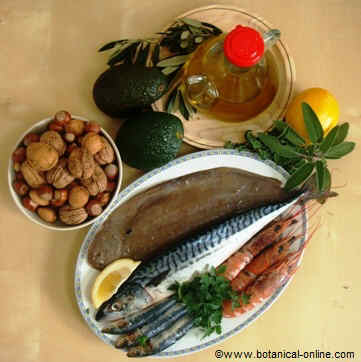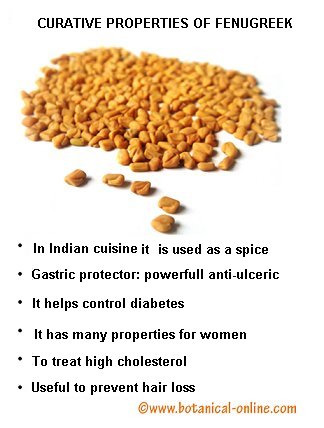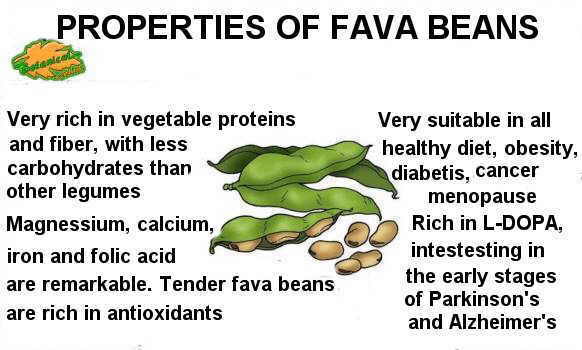Contents
Benefits of the Mediterranean diet for your heart and arteries
CARDIOVASCULAR BENEFITS OF THE MEDITERRANEAN DIET
The benefits of the Mediterranean diet for the heart have been demonstrated over the last century if we take into account the health enjoyed by the inhabitants of the region, presumably with a lower incidence of cardiovascular disease.
This is a diet with abundance and diversity of plant foods such as fruits, vegetables, cereals and legumes.
Plant foods are more abundant than those from animal origin. Among the latter, it is preferred to choose low-fat dairy, and fish.
Omega fatty diet
 Sources of omega fats in the Mediterranean diet.
Sources of omega fats in the Mediterranean diet.
The presence of olive oil, nuts and oily fish in the Mediterranean diet sets a very healthy fat profile.
Mediterranean diet reduces atherosclerosis, because it increases the good cholesterol and reduces the bad cholesterol intake.
The dietary intake of olive oil and nuts has been shown to reduce by 30% the risk of cardiovascular disease. Omega 9, along with vitamin E from olive oil, helps lower high blood pressure.
Omega 3 fats found in oily fish, are an indispensable contribution of essential fatty acids, anti-inflammatory effect.
Olive oil for your heart
The olive oil consumption decreases the incidence of coronary heart disease and certain cancers.
Besides the benefits of omega 9, olive oil contains phenolic compounds such as oleuropein and hydroxytyrosol.
These components are potent antioxidants and protectors of blood capillaries, preventing capillary fragility and deterioration caused by accumulated cholesterol in the arteries.
Vegetables for blood circulation
 Foods of the Mediterranean diet, rich in plant foods
Foods of the Mediterranean diet, rich in plant foods
- Onions and garlic for hypertension
In ancient writings recounted that in the gardens of Babylon, people consumed large amounts of fruits and vegetables, but especially onions and garlic.
The legacy of these foods as staple food is still present, as they are found in almost all Mediterranean preparations.
The onions and garlic consumption has been associated with a lower incidence of coronary heart disease. In addition, these vegetables provide antibacterial, antiproliferative, anticancer, anti-cholesterol and anti-diabetes properties. They help lower blood pressure, prevent thrombus and improve circulation.
- Tomatoes, peppers for your heart
Tomato is a fruit very present in the current Mediterranean diet. It was imported from the New World. This has a balanced sweet and acid flavor, combined with a high glutamic acid content, that enhances the taste of the dishes. For these reasons, tomato plays a basic role in the stir fry, sauces and Mediterranean culinary preparations.
The scientific community highlights its vitamin C and lycopene content for health. Lycopene is a natural antioxidant that protects the arteries, reduces the risk of cardiovascular disease and protects against various types of cancer (breast, colon and stomach).
Peppers are from the same family as tomatoes. They owe their pungency to an alkaloid, capsaicin, with analgesic and antiinflammatory properties. These are an important source of vitamin C, more abundant than in citrus. (oranges, lemons, pomegranates, etc)
- The most present vegetables in the Mediterranean diet possess very healthy properties for the circulatory system.
Mediterranean lifestyle, the most healthy for cardiovascular system
The Mediterranean lifestyle is a character and a way to feed and interact with the environment shared by all peoples of the Mediterranean basin.
It is defined as an active lifestyle, open to the rides and regular physical exercise. It is also a culture to the body itself, taking food as first medicine.
- Scientific studies have shown that the way of the Mediterranean people eat is one of the most complete and balanced.
For obesity, this diet plan and life also offers benefits. Vegetable oils satiate the appetite and reduce hunger, helping to combat overweight.
* Related information: Foods in the Mediterranean diet.
![]() More information on Benefits of the Mediterranean diet.
More information on Benefits of the Mediterranean diet.








